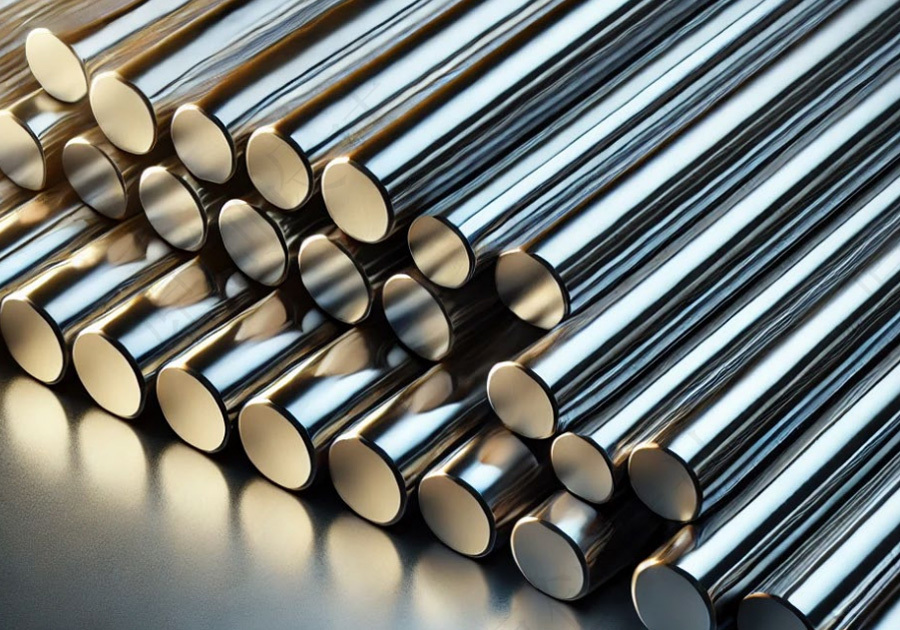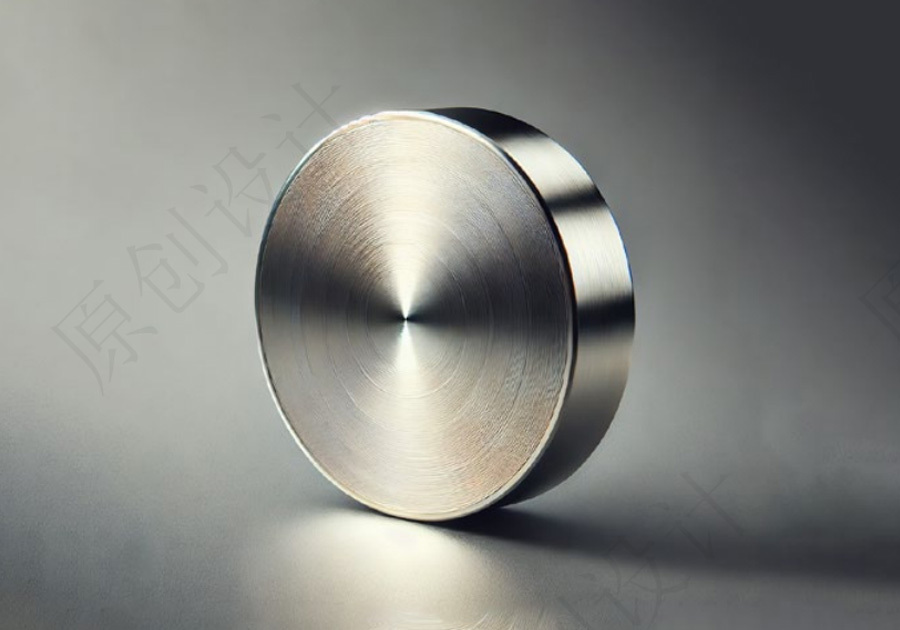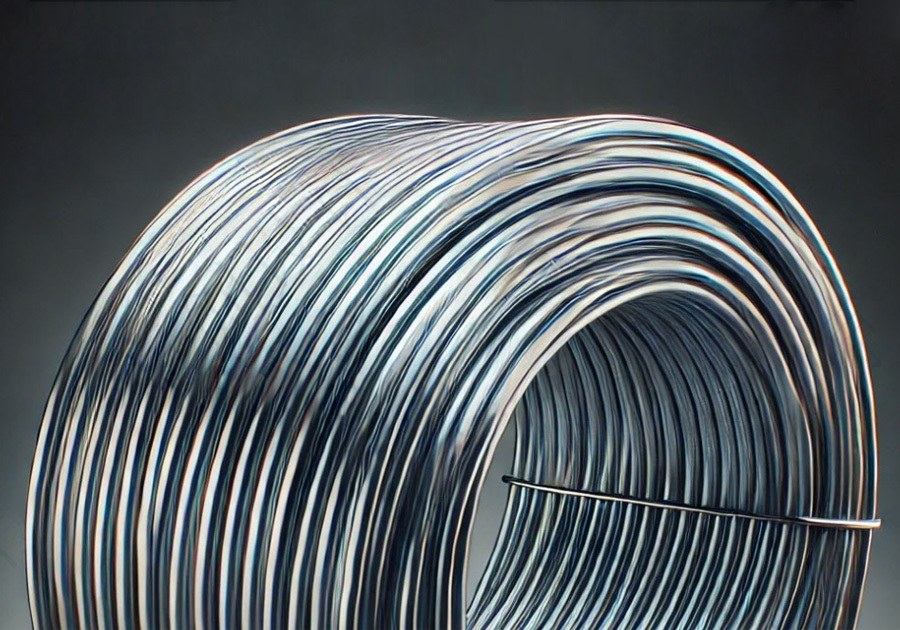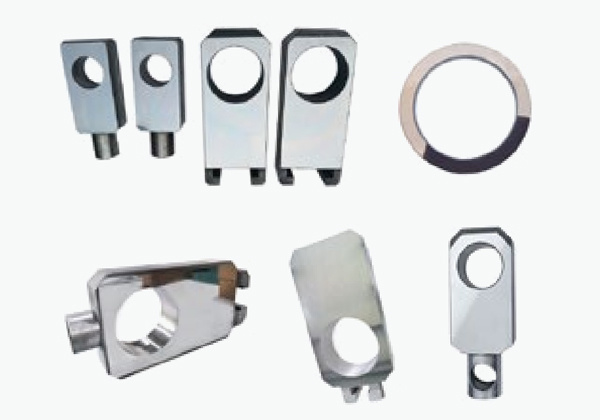DETAILED
E-series
MicroThermics R&D system can perfectly match the entire production process of the beverage industry, so your product can go from lab to production in just one step.
Category:
MicroThermics UHT/HTST
Keyword:
Foreign trade
DYNAMIC DAYLIGHT
Tel:
PRODUCT DETAILS
MicroThermics' R&D system is fully compatible with the entire beverage production process, allowing your product to go from lab to production in a single step. During beverage R&D on our system, users can significantly reduce development time through rapid and precise iterative adjustments to recipes, making it more cost-effective than any other method. Our E-series: electrically heated, UHT/HTST (Ultra-High Temperature and High-Temperature Short-Time) intelligent R&D systems attract researchers hoping to produce fruit juices, milk, or custard. In addition to HTST and UHT processing, they can also perform hot filling and other continuous heating processes. These processors are easy to operate, extremely flexible, and offer a wide range of upgrade paths to support your expanding R&D. By accurately simulating the entire production process, we can avoid failed production attempts, saving time and reducing costs.
In short, investing in MicroThermics’ system will save you valuable time and money!
Power: Flow rate 0.8-4 liters/minute
Processing Range
| Model | | Pre-heater | Final Heater | Viscosity Range | Holding Time (seconds) * |
| HTST-E1S | to 250°F (121°C) | NA | Low to Medium | 3, 6, 12, 18, 24, 30, 36 |
| UHT/HTST-EDH | to 250°F (121°C) | 170°-305°F(76°-152°C) | Low to Medium | 3, 6, 12, 18, 24, 30, 36 |
| UHT/HTST-EHV | to 250°F (121°C) | 170°-305°F(76°-152°C) | Medium-High Viscosity | 6, 30, 60, 90, 120 |
| UHT/HTST-EHVH | to 250°F (121°C) | 170°-305°F(76°-152°C) | High Viscosity | 6, 30, 60, 90, 120 |
Processing - Batch processing with flow rates as low as 1L. Processable products - depending on the model.
| • UHT Processing • Aseptic Processing • Extended Shelf Life (ESL) • Ultra-Pasteurization • HTST Pasteurization |
• Starch Gelatinization • Nutritional Supplements • Fruit Concentrates • Hot Fill Hold • Enteral Nutrition • Juices, Teas, and Coffees • Pulpy Juices |
• Milk and Flavored Milks • Continuous Heating • Hot Filling • More |
• Broths • Fruit Concentrates • Applesauce, Yogurt • Gravy/Cheese Sauce • Pudding and more! |
Features and Options
Features (Partial List)PLC Control and Data Acquisition Sanitary Design • Easy Operation • Dual Product Inlet • Variable Speed Product Pump • Adjustable Flow Rate and Holding Time • 5 Holding Tubes • Product Cooler • Back Pressure Valve • Junction Box • Homogenizer Setup (HV and HVH) • Lab Benchtop Enclosure with Sink |
Optional (Partial List)Additional Holding Tubes and Coolers • Additional Temperature/Pressure Sensors Spare Heat Exchanger (e.g., Plate Type) • Automatic Filling Control • CE or NRTL Marking • Aseptic Filling Enclosure/Aseptic Product Outlet • Enhanced PLC Control/Data Logging • In-Line Homogenizer • Product Pump Run Dry Protection • Steam Injection Processing Module • Steam Generator, Chiller • Spare Parts, Tool Kit, and More! |
Overall Flow Diagram (Electrically Heated Water - Hot Water Indirectly Heats Product)
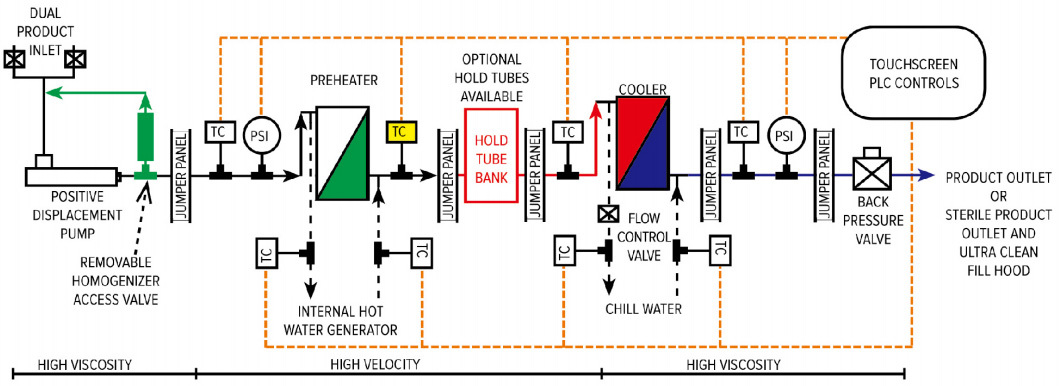
HT/HTST Lab-25
HVH HTST Processing (Single Heater)
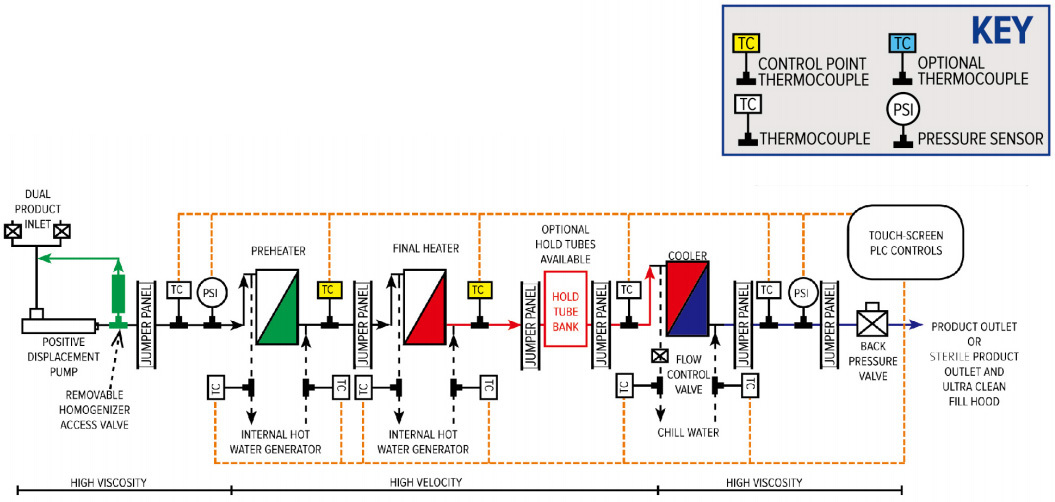
UHT/HTST Lab-25 HVH
UHT or HTST Processing (Dual Heaters)
Infrastructure Requirements
Water and Electricity• Potable Water • Cooling Water • Electricity: 3Ф, 220, 440, 380V • Power: 1Ф, 110/220 V • Drainage system: Standard 1.5-2 inch drain pipe |
Dimensions• Workbench height: 38 inches (0.97 meters) • Workbench depth: 32 inches (0.85 meters) • Overall length: 70 inches (1.8 meters) • Overall height: 68 inches (1.74 meters) |
FAQ

What are the regular maintenance tasks for a website?


What are the differences between UI and UX in website design?


What types of website hosting services are there?


What is the function of website traffic statistics tools?


How to choose the right website building technology for yourself?


How to start building your own website?

ONLINE INQUIRY
We will contact you within one working day. Please pay attention to your email.
RELATED PRODUCTS
Previous Page
Next Page




